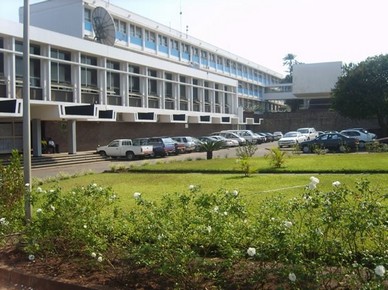Malawi’s new president, Peter Mutharika, has done away with the controversial student quota system, saying that six more universities will be built to widen access to higher education.
The president said a new university would first be built in the country’s northern region, an area that has traditionally been vehemently opposed to the quota system that based access to university on one’s place of origin rather than merit.
“The next university should be built here in the north. The site of Mombera University has already been identified in Mzimba and the next budget will have an allocation for the designing of the university,” said Mutharika on 22 August at a graduation ceremony at Mzuzu University, which is in the northern region.
The president said that having taught at several universities in both Africa and overseas, and having achieved the rank of an endowed and chaired professor, gave him an understanding and appreciation of education in general and higher education in particular.
He said there were several aspects of higher education that Malawi must address in order to develop, namely: access, quality, relevance, and management and good governance.
“Access to higher education still remains a privilege of a few people in this country. We must increase the numbers of students able to access university education through having more available places.
“Sadly, we are among the lowest performing countries in our region in this regard. We need to improve, both by expanding enrolment at existing universities and through the creation of new universities,” said Mutharika.
“It is the wish of my government that more youth are enrolled in university as higher education is critical to the development of this country. We need also to venture into a wide variety of disciplines, critical to the development of Malawi.”
He added that the quality of university education needed to be critically assessed, because a university degree was of little use to anybody if the person has not received quality education.
He said government had recently established the National Council for Higher Education, and the first challenge of this new organisation was to monitor, register and accredit universities and academic programmes to make sure that no university student, whether at a private or a public university, received a sub-standard education.
Mutharika said the challenges facing universities and the education system in general emanated from limited resources, hence the need to find innovative ways of financing universities both by attracting more resources from outside the country and by finding additional resources within the country, through public funds, fees or private sector finance.
He added that universities themselves must play a key role in raising these resources.
The government recently approved a loan from the World Bank for a skills development project that would direct significant resources to universities. But Mutharika did not mention the setback suffered after parliament rejected the loan, which may be an indication of his confidence that problems around it will be ironed out.
BREAKING NEWS
- Lady passes away from kidney failure after husband allegedly pocketed donations and took her to church for prayers
- Zambia MP Emmanuel Banda arrested in Zimbabwe
- President William Ruto cancels two major deals with Indian billionaire Gautam Adani
- ICC Issues Arrest Warrants for Netanyahu, Gallant, and Hamas Commander Over War Crimes
- Mutharika registers ahead of 2025 polls
- VP Michael Usi breaks silence on UTM Convention
- Nine-Year-Old Boy Dies After Roof Collapses During Heavy Rain in Nkhotakota
- Son-in-Law Assaults Mother-in-Law During Argument with Wife, Fined K50,000
- NRB yet to fully comply with court order on IDs, voters sent back in some registration centres in Blantyre
- Lady spotted giving head at a house party during Truth or Dare game (watch video)





No comments! Be the first commenter?